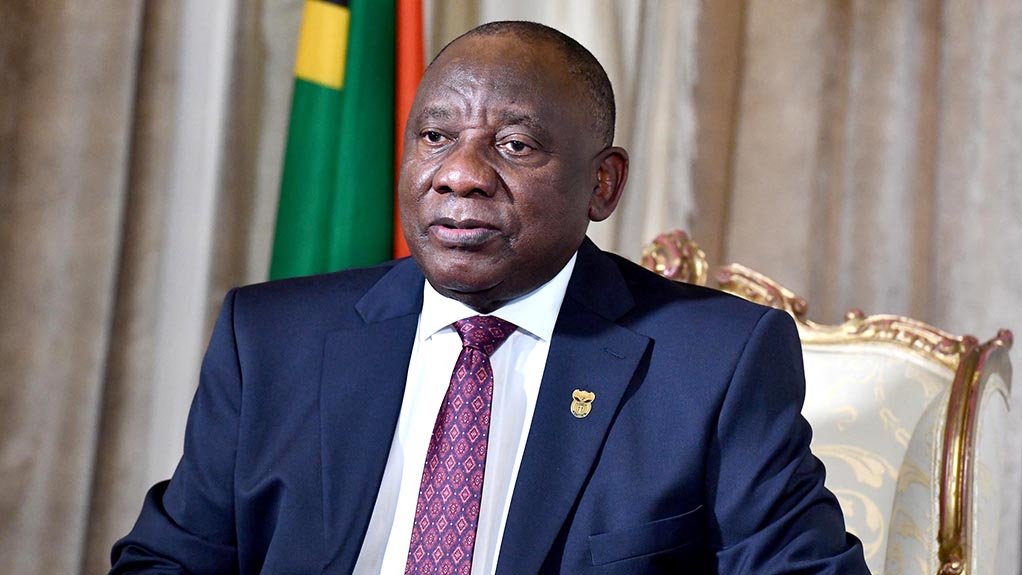Politics and economics are set to collide over welfare payments in the world’s most unequal nation.
The first clue over which will prevail may come in South African President Cyril Ramaphosa’s State of the Nation address on Thursday.
Record unemployment and deepening poverty has fuelled calls for the government to move toward a basic income grant, which would be the biggest of its kind globally, or to at least extend a temporary stipend of R350 a month paid to the unemployed during the pandemic permanent at that level or slightly higher. That measure added 10.3-million people to the welfare net.
The debate has pitted Ramaphosa, who has said a basic income grant is a possibility and has raised the idea several times, against Finance Minister Enoch Godongwana, who’s seeking to return government finances -- hard hit by a decade of overspending, mismanagement and corruption -- to a sustainable path.
For Ramaphosa expanding what’s already a large welfare state is attractive because it could bolster support for the ruling party after its share of the vote sank below 50% for the first time in last year’s municipal elections. For Godongwana it’s unpalatable and he has said the money would be better spent on creating jobs and investing in water, power and other infrastructure.
“Ramaphosa is staking his political future on the permanence of this grant,” Michael Sachs, former head of the National Treasury’s budget office and head of a commission that makes recommendations to government on financial and fiscal matters, said in an interview.
The argument for additional support for the poor is strong. More than a third of the workforce is jobless. A week of looting and arson that killed 354 people across two provinces in July has been attributed to increasing desperation.
Yet South Africa already spends 3.3% of gross domestic product on welfare, mostly in the form of child support and pensions. That’s more than most countries and will amount to 222-billion rand in the year through February. Before the Covid-19 stipend more than 18-million people, or almost a third of the population, were on welfare.
Even Ramaphosa’s own economic advisers are divided. Eleven members of the Presidential Economic Advisory Council put their names to a leaked report that said a basic income grant would be a “policy error” that would crowd out spending on health, education and infrastructure. The taxes that would be needed to pay for it would stunt growth, they said.
Divided Advisers
“We can’t afford continuous additions to the welfare net in our country,” said Cas Coovadia, chief executive officer of Business Unity South Africa, the country’s biggest business organization. “Our economy is not growing and is rated as sub-investment grade.”
Four members of the council wrote a dissenting report that argued for such a grant.
Not paying one “is basically a threat to our social fabric and we might see another July moment if we do not act decisively now,” Zimbali Mncube, a researcher at the Institute for Economic Justice, said in reference to last year’s violence.
Sachs, and other economists, predict Ramaphosa will extend the support to the unemployed, and that could be seen a precursor to more generous support at a later stage. The R350 payment is set at just a quarter of the monthly income the national statistics agency says is needed to escape poverty.
Extending the Covid-19 stipend alone for a year would cost R35-billion, according to BNP Paribas. While the government can probably afford to do so as high commodity prices are putting revenue on course to exceed estimates, a permanent basic income grant could prove unsustainable.
In November, Godongwana pledged to address the deterioration in state finances, regain South Africa’s investment-grade credit ratings and said funding for grants beyond March would depend on revenue. He’s due to announce updated spending plans in the February 23 budget.
EMAIL THIS ARTICLE SAVE THIS ARTICLE
To subscribe email subscriptions@creamermedia.co.za or click here
To advertise email advertising@creamermedia.co.za or click here











